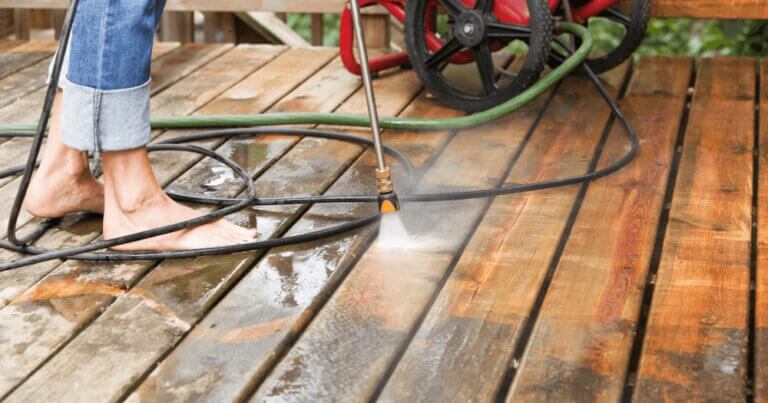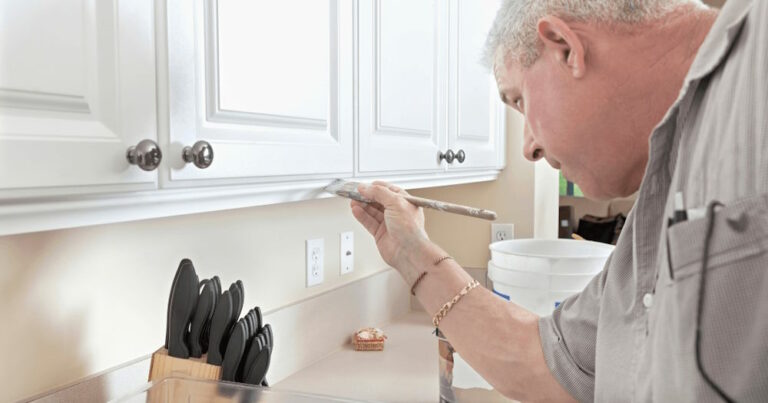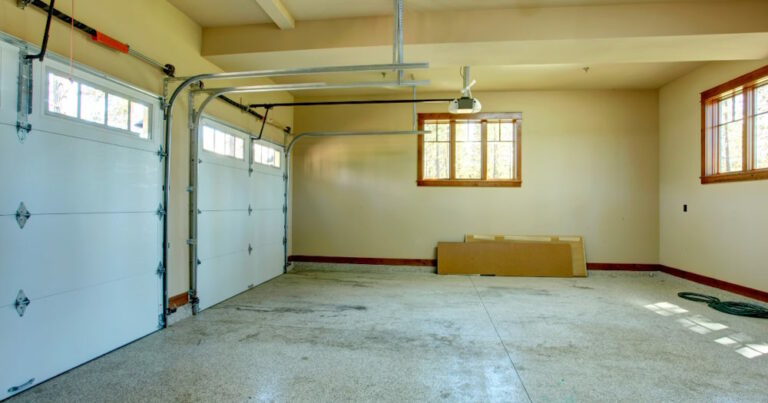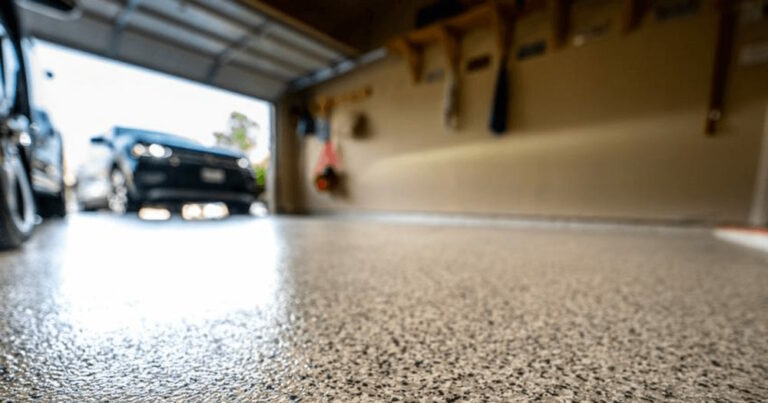If you’re considering upgrading your floors, epoxy flooring may have caught your attention. It’s a popular choice for both residential and commercial spaces due to its durability and aesthetic appeal.
However, before you make a decision, it’s important to consider the pros and cons of epoxy flooring to determine whether it’s the right fit for your needs and budget.
Key Takeaways:
- Epoxy flooring is a type of surface coating used in high-traffic areas.
- It offers exceptional durability, easy maintenance, versatile design options, and can be cost-effective in the long run.
- However, it requires professional installation, can be time-consuming, can become slippery when wet, and repairing damage can be challenging.
- Epoxy flooring is commonly used in residential garage floor, commercial warehouses, industrial facilities, and healthcare settings.
- Proper maintenance includes regular cleaning, avoiding harsh chemicals, protecting against scratches, and promptly addressing spills.
What is Epoxy Flooring?

Epoxy flooring is a popular surface coating used in various settings, from residential to industrial. It consists of a two-part epoxy resin that is mixed together and applied as a liquid to the floor. Once cured, it forms a hard and glossy surface that is resistant to stains, chemicals, and heavy impacts.
Compared to traditional flooring options like concrete, tiles, or vinyl, epoxy flooring provides a more polished and visually appealing finish. It is also more durable and easier to maintain than those options. Let’s explore the key benefits of epoxy flooring in more detail.
The Pros of Epoxy Flooring
Epoxy flooring has become increasingly popular in both residential and commercial spaces due to its range of benefits. Below are some of the pros of using epoxy flooring:
| Advantages of Epoxy Flooring |
| Durability: Epoxy flooring is known for its exceptional durability, making it resistant to heavy foot traffic and impact without easily scratching or chipping. This type of flooring can withstand the wear and tear of high-traffic areas. |
| Easy Maintenance: Epoxy flooring is easy to clean and maintain. It is resistant to stains, chemicals, and spills, making it a suitable option for areas prone to spills or accidents. |
| Versatile Design Options: Epoxy flooring comes in a variety of colors, patterns, and finishes. It can be customized to match any aesthetic or design preference, allowing for a visually appealing floor that complements the rest of your space. |
| Cost-Effective: While epoxy flooring may appear to cost more upfront than other flooring options, it can be cost-effective in the long run. Its durability reduces the need for frequent repairs or replacements, saving you money over time. |
Overall, epoxy flooring is a practical option for a variety of spaces due to its durability, easy maintenance, versatile design options, and long-term cost-effectiveness.
The Cons of Epoxy Flooring
While epoxy flooring has many advantages, it also has some drawbacks to consider.
- Installation Process: The installation of epoxy flooring requires careful preparation and skilled application. It may not be a suitable DIY project for everyone and could require professional assistance.
- Time-consuming: The installation process of epoxy flooring can be time-consuming. It involves multiple steps, including surface preparation, applying the epoxy, and allowing it to cure. This may result in temporary disruptions to your space.
- Slippery When Wet: Epoxy flooring can become slippery when wet. This may pose a safety risk in areas exposed to water or liquids. Adding anti-slip additives or choosing a textured finish can help address this concern.
- Limited Repair Options: If a damage occurs to the epoxy coating, repairing it can be challenging. It may require a professional to fix or even a complete reapplication of the epoxy.
Remember, addressing the cons of epoxy flooring is just as important as considering its benefits. Take these factors into account when deciding if epoxy flooring is the right choice for your space.
Applications of Epoxy Flooring
Epoxy flooring is a versatile flooring option that can be used in various settings due to its durability and aesthetic appeal. Let’s take a look at some of the common applications of epoxy flooring:
Residential
Epoxy flooring is a popular choice for residential garages, basements, and laundry rooms. Its ability to resist stains and spills makes it ideal for areas where accidents are common. Homeowners also love epoxy flooring because it is customizable, allowing them to add a unique touch to their space.
Commercial
Epoxy flooring is a go-to option for commercial spaces such as warehouses, showrooms, and retail spaces. Its resistance to heavy traffic and low maintenance requirements make it a practical choice for busy areas. Additionally, epoxy flooring’s ability to be customized to match any branding or aesthetic style makes it a popular option for businesses.
Maintenance Tips for Epoxy Flooring

Proper maintenance is crucial to prolong the lifespan of your epoxy flooring and keep it looking its best. Here are some maintenance tips to consider:
- Regular Cleaning: Sweep or dust mop your epoxy flooring frequently to remove dirt and debris that can scratch its surface. You can also use a soft-bristled broom or vacuum. For deeper cleaning, use a mild detergent and warm water solution. Avoid using harsh or abrasive cleaning agents that could damage the finish.
- Avoid Harsh Chemicals: While epoxy flooring is resistant to chemicals, it is still recommended to avoid using harsh or abrasive cleaning agents that could damage the finish. If you need to use chemicals to clean your epoxy flooring, use a neutral pH cleaner and rinse thoroughly with water.
- Protect Against Scratches: Avoid dragging heavy equipment or furniture across your epoxy flooring to prevent scratches or dents on the surface. Use furniture pads under heavy furniture to distribute weight evenly. You may also consider placing rugs or mats in high-traffic areas to prevent wear and tear on your epoxy coating.
- Promptly Address Spills: Wipe up any spills immediately to prevent staining or damage to the epoxy coating. Use a soft cloth or paper towel to absorb the liquid and a mild detergent to clean the area. Rinse thoroughly with water and dry the surface.
By following these simple maintenance tips, you can extend the life of your epoxy flooring and keep it looking new for years to come.
Epoxy Flooring vs Other Options
When considering different types of flooring materials for your space, it can be helpful to compare the pros and cons of each option. Here is a comparison of epoxy flooring to other common flooring options:
Epoxy Flooring vs. Concrete
Epoxy flooring offers several advantages over bare concrete floors. It provides a more polished and visually appealing finish, and it is also more resistant to stains and spills. While concrete is a low-cost option, epoxy flooring can provide a longer-lasting and more durable solution.
Epoxy Flooring vs. Tiles
Tiles offer a wide range of design options, but they can be prone to cracking and chipping, especially in high-traffic areas. Epoxy flooring, on the other hand, provides a seamless and more durable surface that is easier to maintain. It also offers unique design options, such as metallic and glitter finishes, that tiles cannot.
Epoxy Flooring vs. Vinyl
While vinyl flooring is a popular option for its affordability and ease of installation, it is not as durable as epoxy flooring. Epoxy flooring is more resistant to heavy traffic, and it also offers a greater level of customization and visual appeal. Additionally, vinyl flooring can be prone to discoloration, while epoxy flooring maintains its color and shine over time.
Epoxy Flooring vs. Hardwood
Hardwood flooring is a classic and timeless option, but it can also be expensive and prone to scratches and water damage. Epoxy floor coating provides a more durable and affordable alternative with a similar aesthetic appeal. It is also more resistant to moisture and spills, making it a suitable option for kitchens and bathrooms.
Cost of Epoxy Flooring
The cost of installing epoxy flooring can vary based on several factors:
| Factor | Description |
| Size of the area | The size of the room or space where the flooring is to be installed. |
| Complexity of the installation | The level of difficulty of the installation process required. |
| Type of epoxy used | The quality of the epoxy used for the installation. |
It is recommended to obtain quotes from professional contractors to get an accurate estimate for the cost of epoxy floors.
The cost can range from $3 to $12 per square foot, depending on the factors mentioned above. While it may seem like a higher upfront cost, the durability and longevity of an epoxy floor can save money in the long run by reducing the need for frequent repairs or replacement.
Conclusion
After weighing the pros and cons of epoxy flooring, it is clear that it can be an excellent choice for both residential and commercial spaces. Its durability, easy maintenance, and customizable design options make it a desirable option for many. However, it is important to consider the potential drawbacks, such as the need for professional installation and its slipperiness when wet.
Ultimately, the decision to install epoxy flooring depends on your specific needs and budget. Our team at Canyon Painting can provide you with professional discussions about epoxy coatings and other flooring solutions.
Contact us today!





